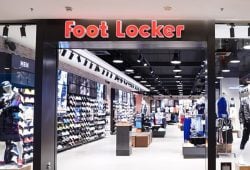Online shopping, while convenient, is increasingly becoming a frustrating experience for many consumers. A recent survey by Constructor revealed that a significant portion of online shoppers feels dissatisfied with the current state of product discovery and search functions on retail websites. The survey, part of the second annual State of Ecommerce Search and Product Discovery report, offers insights into the issues facing e-commerce and how retailers can improve customer satisfaction.
Struggles with Search
One of the key frustrations for online shoppers is the inefficiency of search tools on e-commerce sites. According to the survey, nearly 7 in 10 shoppers (68%) believe that the search functions need significant upgrades, with this sentiment being stronger in the U.S. (71%) compared to the UK (61%). Shoppers are often left scrolling endlessly through irrelevant products, and for 44% of them, it can take over three minutes to find what they are looking for. Shockingly, for 21% of respondents, the search process drags on for more than eight minutes.
Adding to these frustrations, 41% of shoppers frequently need to reformulate their search queries to help the site understand what they’re looking for. In many cases, although technically relevant results are returned, they often miss the mark, leaving 42% of shoppers disappointed with the search outcomes.
The Lack of Personalization
Another major complaint is the absence of personalization. Many shoppers feel like they’re treated as strangers when they revisit a retailer’s site, even after making previous purchases. More than 4 in 10 shoppers (44%) report that they receive generic recommendations, which fail to reflect their preferences. Additionally, only 32% of shoppers describe product discovery as “enjoyable,” signaling a missed opportunity for retailers to engage customers more deeply.
ALSO READ. Monsters Netflix: How much money did the Menendez brothers inherit?
Consequences of Poor Product Discovery
Retailers that don’t address these search and personalization issues risk losing customers to competitors. When shoppers can’t find what they’re looking for, 52% are likely to abandon the site and 48% will purchase from a different retailer. For many, Amazon remains the go-to alternative, with 38% of frustrated shoppers opting to buy there instead, followed by Google Shopping at 27%.
However, the survey also reveals a silver lining for retailers who excel in product discovery. If shoppers experience a smooth and effective search process, 62% are likely to shop more frequently at that retailer, and 42% will prioritize that site for future shopping. Moreover, 24% of shoppers are even willing to pay a 5-10% premium for a better product discovery experience, indicating the tangible financial benefits of improving search functionality.
Opportunities for Retailers
The survey results suggest that retailers can enhance their online shopping experience by focusing on a few key areas. Nearly half of the respondents (45%) said they would prefer search results that better reflect their specific needs. Better filtering options, desired by 33%, could also improve the search experience. Personalization, which was important to 30% of shoppers, is another critical area for improvement, particularly for younger shoppers.
Retailers should also prioritize the mobile experience. With 61% of shoppers doing at least half of their shopping via mobile devices, creating a seamless product discovery experience on mobile is essential. Interestingly, the survey found that mobile shopping is just as prevalent among older shoppers, with 21% of those aged 60+ doing all their online shopping on mobile devices.
The Role of AI in E-commerce
Generative AI (GenAI) is rapidly transforming the online shopping experience, with over half of shoppers (51%) having tried AI tools like ChatGPT or Google Bard. Younger shoppers, aged 18-29, are the most enthusiastic adopters of GenAI, with 64% having used these tools. Shoppers are becoming more open to AI-enhanced product discovery, with 52% saying they would be comfortable using GenAI to help find products.
Retailers can leverage AI to offer more accurate product recommendations, enhance image-based search features, and provide personalized shopping experiences. Additionally, AI-powered virtual try-ons and customer support services can further enhance the online shopping experience.
Charting the Future of E-commerce
The integration of GenAI into e-commerce is not just a trend, but a pathway to long-term success for retailers. The ability to understand longform search queries, interact with AI shopping assistants, and provide personalized, real-time product suggestions are just a few ways AI can transform the future of online shopping. Retailers who strategically implement AI will not only meet evolving customer expectations but will also establish themselves as leaders in the future of e-commerce.
As the report concludes, “Good product discovery experiences literally pay off,” and retailers must take note if they wish to remain competitive in an increasingly crowded digital marketplace.










